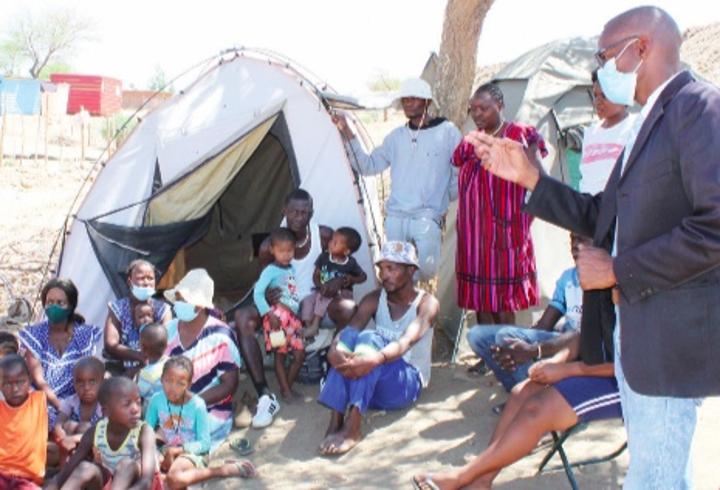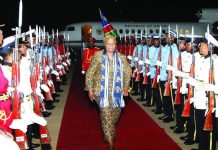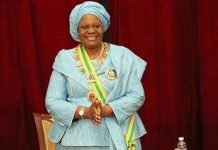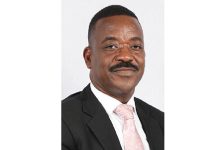Africa-Press – Namibia. THIRTY-two people including pupils, toddlers, and a two-week-old baby, have been living at a river bed near a dumpsite along the Daan Viljoen Road at Otjomuise’s Agstelaan area in Windhoek for the past seven months.
The group on Thursday told The Namibian they have been living at the river bed in tents since April after failing to occupy land. Renting has become unaffordable, and they have resorted to the river bed as they have nowhere else to go, they said.
Maria Kaichab (29), who hails from Otjinene in the Omaheke region, said she moved to the capital in 2010 and lives with her partner Abel Kavari (31) and their four children in one of the tents.
Life became even harder when she lost her job as a domestic worker in 2018, she said. “We were renting a shack for N$300, but could no longer afford paying rent.
“Finding food is a daily struggle, and at times we go to bed on an empty stomach,” Kaichab said. Kavari said he has to take medication for his heart disease, but finds it hard to take it on an empty stomach.
Zenojambu Katjiteo (25), the motherof a two-weeks-old baby, said the situation at times causes a lot of stress, which leads to depression. She does not have enough food for herself and her baby, she said.
She fears the rainy season, she said, as it would make conditions worse for her and her baby. Some of the women said they are not safe at the river bed at night.
People throw stones at their tents at night, and they often fall victim to robbers when they fetch water. Popular Democratic Movement (PDM) secretary general Manuel Ngaringombe last week said this group of people are experiencing a serious humanitarian crisis.
“It is so bad that we have people living in river beds and at dumpsites 31 years after independence.
“Our aim is to expose the situation and to call upon the government and our leaders, because this is not how we should live,” he said.
He said the group needs temporary shelter, because the dumpsite is unhygienic, while permanent structures are considered. The food which the PDM last week provided them with may only last for two days, he said.
Committee leader Sylvester Kazapua and Rinaune Kandji, who represented the group during the food handover and the PDM’s visit, were also present. Kandji said the city councillors and Windhoek’s mayor should elaborate on the barriers they face in the process of allocating land people, since the matter is long overdue. The marginalised families consist of mostly San, Otavue and Ovatjimba people.
For More News And Analysis About Namibia Follow Africa-Press






